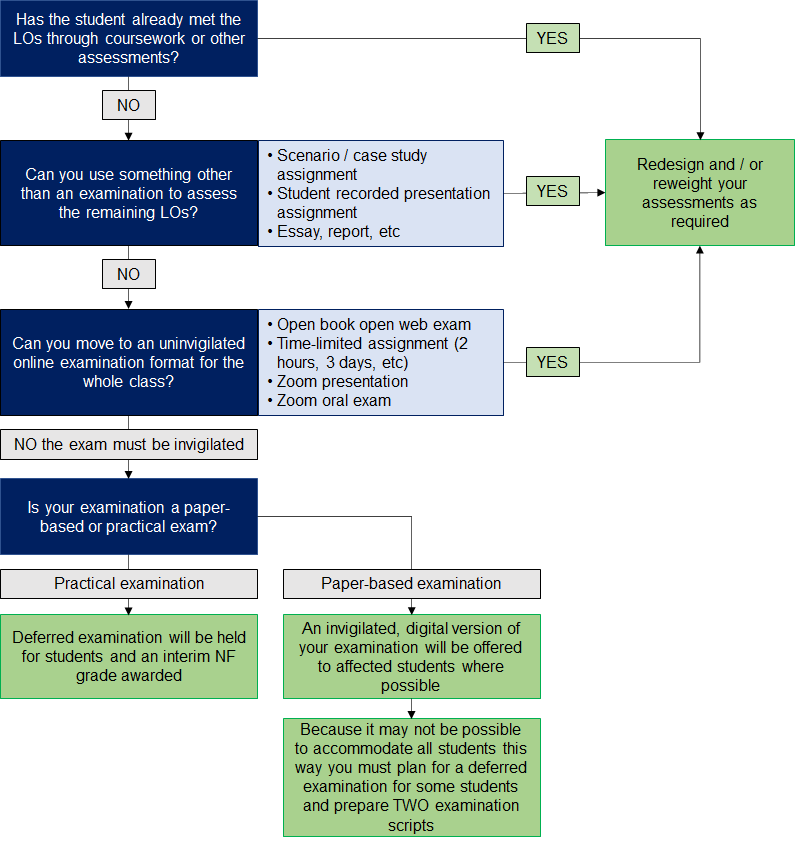Online assessment | Alternatives to face-to-face exams

The recent transition of learning and teaching to the digital campus has brought with it a change in how we effectively measure students’ achievement of learning outcomes. Whether in person or online, traditional exams have presented limitations in assessing learners as they are often designed to measure a student’s ability to memorise and recall information, often under additional pressure such as time. While this mode of assessment may suit some students, others may experience stress and anxiety surrounding exams and this may lead to unintended consequences such as low performance during the exam and / or a desire to cheat, particularly if the exam stakes are high.
Exploring alternatives to traditional exams may also mitigate disadvantages that some students experience by learning remotely. This can be achieved by making reasonable adjustments to the structure of assessments and removing assessment complexity for all students studying online.
The below decision tree can help you determine whether it is feasible to incorporate alternative summative assessments into your course, and shows examples of such alternatives.
Adapted from Flinders University (2020)
Explore some options for incorporating learner friendly assessments in the online environment, as students learn through acquisition, collaboration, discussion, investigation, practice, and production (Click on “Turn” on each card below to see examples of assessment types suggested).
When thinking about offering alternative assessments, the below points are worth considering when designing and implementing assessments:
- Sound pedagogic considerations – Ensure the assessment is developed so that the it is measuring the learner’s competencies in the fairest way, while maintaining a high standard of assessment validity
- Match the scale and level of the learning outcomes to which the programme teams are committed by the course documentation
- Provide support for those struggling with new approaches
- Make reasonable adjustments for all students with temporary or long-term health conditions, disabilities and additional needs
- Maintaining academic Integrity without being overly punitive with new requirements on students
Do you have any questions or require further details on any of the points mentioned above? How have you been using alternative assessments in your digital campus? We’d love to hear about your strategies and approaches. Watch recent webinar recordings on this topic and/or join our discussion forums on the Navitas Community – Online Support Strategies site, or email learningandteaching@navitas.com to share your good practice and continue the conversation.
[This story was produced in collaboration with Tania Lee]
Reference list:
- ACODE. 2020
- Bentley University, 2020. https www.bentley.edu/coronavirus/keepteaching
- Brown, S. & Sambell, K. (2020). Contingency planning: exploring rapid alternatives to face to face assessment. https://sally brown.net/2020/03/13/assessment alternatives at a time of university closures/
- Flinders University. 2020. Assessment alternatives to exams https:// staff.flinders.edu.au/content/dam/staff/learning teaching/guides/exam alternatives resource.pdf
- O’Neil, G. 2020. 10 Points to Consider in Choosing Alternative Assessment Methods for the Online Environment For COVID 19 Coronavirus Contingency Planning
- SLU, 2020. Moving exam content online. https://www.slu.edu/cttl/docs/resources/moving_exam_content_online.pdf

